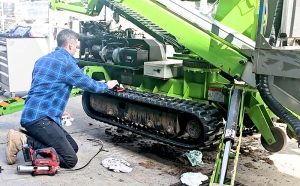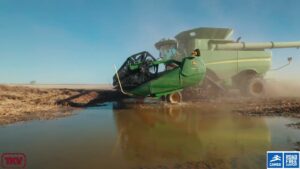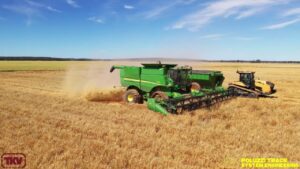In the world of heavy machinery used in agriculture, construction, and various industrial applications, tracks play a pivotal role in determining the efficiency, productivity, and overall performance of the equipment. Upgrading your machinery’s tracks isn’t just about replacing worn-out components; it’s an investment that can significantly impact your operations. In this blog, we’ll explore how upgrading your tracks can lead to enhanced productivity and improved results.
The Tracks of Progress
Tracks, whether made of rubber or steel, are not merely accessories for your heavy machinery – they are critical components that influence various aspects of performance. Here’s how upgrading your tracks can make a substantial difference:
1. Traction and Stability
One of the key benefits of upgrading tracks is the improvement in traction and stability. Enhanced traction allows your machinery to operate efficiently on challenging terrains, including mud, snow, sand, and rocky surfaces. This translates to increased manoeuvrability and reduced instances of slippage, which can lead to time wastage and potential accidents. Improved stability ensures that your machinery can handle heavier loads and navigate uneven landscapes with confidence.
2. Reduced Downtime
Old, worn-out tracks can lead to frequent breakdowns and unscheduled maintenance, resulting in costly downtime. Upgrading to high-quality tracks minimises the chances of sudden failures and breakdowns, keeping your machinery operational for longer periods. This increased uptime directly contributes to higher productivity and less disruption to your projects.
3. Optimised Fuel Efficiency
Efficient tracks can reduce the strain on your machinery’s engine, leading to optimised fuel consumption. Upgrading tracks that provide better traction and require less effort to move can lead to significant fuel savings over time. This not only cuts operational costs but also contributes to a more environmentally friendly operation.
4. Enhanced Load-Bearing Capacity
For heavy-duty tasks, load-bearing capacity is paramount. Upgrading to tracks designed to handle heavier loads allows your machinery to take on larger projects without compromising
performance. This increased capacity can speed up tasks that would otherwise require multiple trips or extra equipment, ultimately boosting productivity.
5. Improved Operator Comfort
Modern track designs often come with features aimed at enhancing operator comfort. Reduced vibrations, smoother rides, and better shock absorption all contribute to a more comfortable work environment. When operators are comfortable, they can focus better, work more efficiently, and maintain their productivity levels.
6. Precision and Accuracy
Precision is crucial in many applications, such as grading, digging, and excavating. Upgraded tracks that provide improved control and manoeuvrability enable operators to achieve greater accuracy in their tasks. This precision translates to higher-quality work and less rework, ultimately saving time and resources.
7. Longevity and ROI
While upgrading tracks might have an upfront cost, it’s an investment with long-term benefits. Quality tracks, whether rubber or steel, are designed for durability and longevity. This means fewer replacements and reduced maintenance costs over time, leading to a higher return on investment (ROI).
Upgrading your machinery’s tracks is more than just a maintenance task – it’s a strategic move to enhance productivity, efficiency, and the overall capabilities of your equipment. Improved traction, stability, load-bearing capacity, and operator comfort all contribute to smoother operations and better results. By investing in high-quality tracks that suit your machinery’s requirements, you’re setting the stage for a more productive and successful future in the world of heavy machinery.


